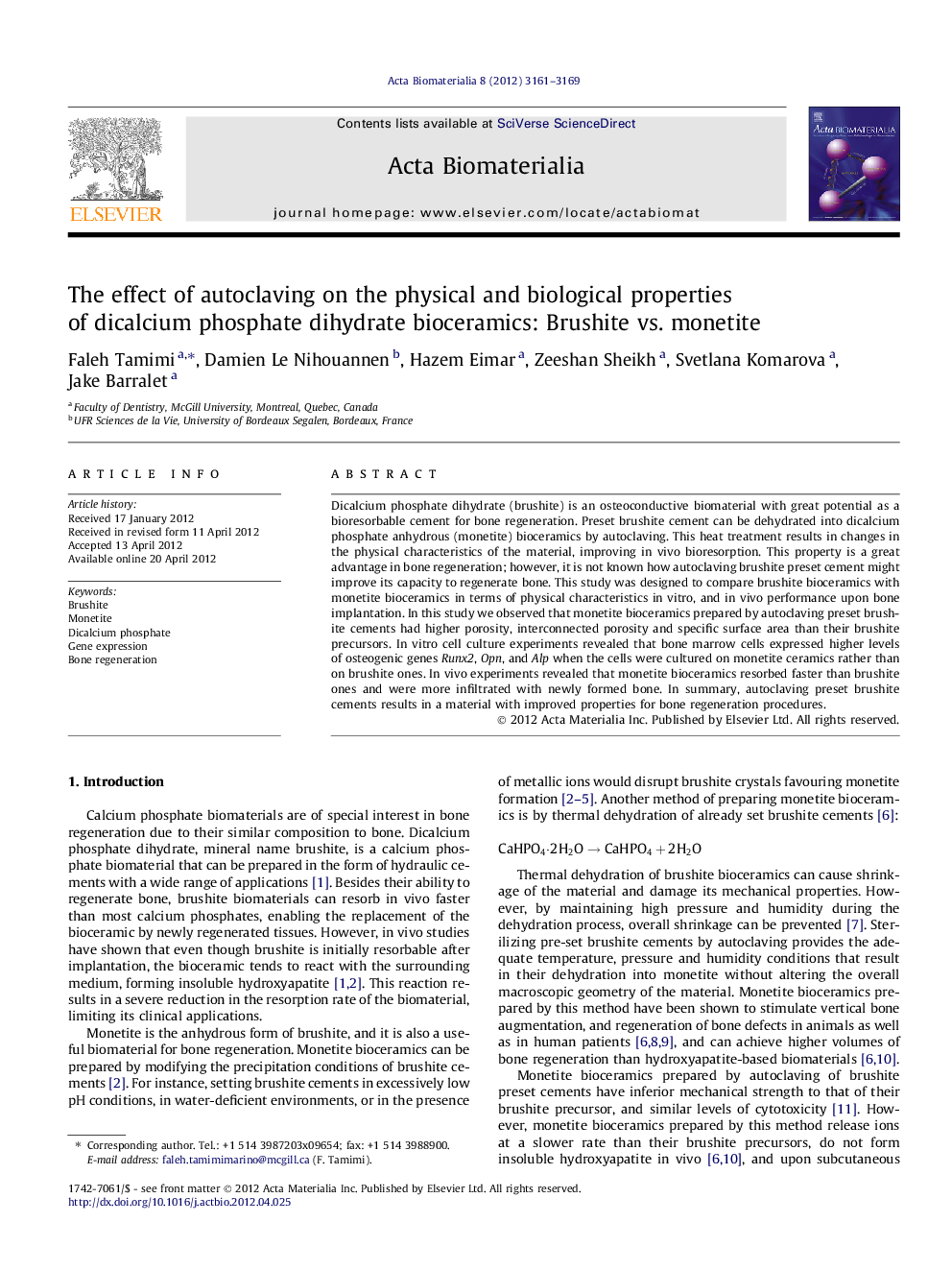| Article ID | Journal | Published Year | Pages | File Type |
|---|---|---|---|---|
| 10159758 | Acta Biomaterialia | 2012 | 9 Pages |
Abstract
Dicalcium phosphate dihydrate (brushite) is an osteoconductive biomaterial with great potential as a bioresorbable cement for bone regeneration. Preset brushite cement can be dehydrated into dicalcium phosphate anhydrous (monetite) bioceramics by autoclaving. This heat treatment results in changes in the physical characteristics of the material, improving in vivo bioresorption. This property is a great advantage in bone regeneration; however, it is not known how autoclaving brushite preset cement might improve its capacity to regenerate bone. This study was designed to compare brushite bioceramics with monetite bioceramics in terms of physical characteristics in vitro, and in vivo performance upon bone implantation. In this study we observed that monetite bioceramics prepared by autoclaving preset brushite cements had higher porosity, interconnected porosity and specific surface area than their brushite precursors. In vitro cell culture experiments revealed that bone marrow cells expressed higher levels of osteogenic genes Runx2, Opn, and Alp when the cells were cultured on monetite ceramics rather than on brushite ones. In vivo experiments revealed that monetite bioceramics resorbed faster than brushite ones and were more infiltrated with newly formed bone. In summary, autoclaving preset brushite cements results in a material with improved properties for bone regeneration procedures.
Related Topics
Physical Sciences and Engineering
Chemical Engineering
Bioengineering
Authors
Faleh Tamimi, Damien Le Nihouannen, Hazem Eimar, Zeeshan Sheikh, Svetlana Komarova, Jake Barralet,
